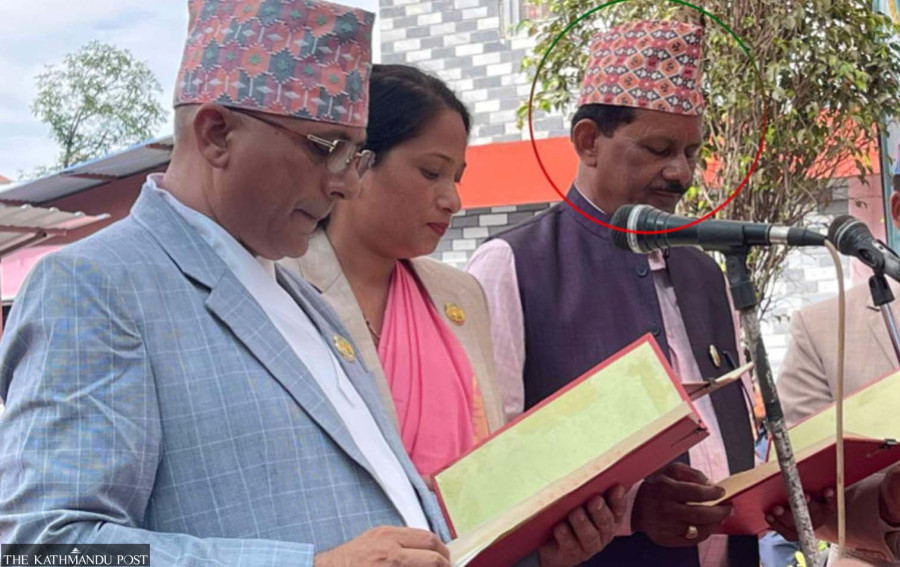Editorial
When crime pays
The country’s two biggest and best established political parties are openly promoting criminals and gangsters.
The Nepali political class is by and large considered immune to public criticism. Even as the amount of flak they face mounts by the day, they appear determined to continue on their own merry way. Otherwise, how can they justify appointing certified criminals and gangsters as ministers? Or picking someone charged with sexual exploitation to a top constitutional post? And how does the public trust a government packed with such tainted figures? In the latest instance of shamelessness, Nepali Congress has picked Badshah Kurmi, someone who is being investigated in a grave crime of the disappearance of a woman, as a minister in Lumbini province. This, just a month after protestors asking for justice signed a five-point deal with the erstwhile Pushpa Kamal Dahal-led government, whereby the government promised to investigate Nirmala Kurmi’s mysterious 2010 disappearance and Badshah’s supposed hand in it. An earlier government committee formed to look into the matter had recommended that eight people, including Badshah, be apprehended and investigated in the case. The seven others were arrested, but not Badshah.
Over in Gandaki province, Rajeev Gurung who is better known as Deepak Manange, a gangster who has been repeatedly jailed, is the minister for physical infrastructure, in what is his fourth stint as a provincial minister. On Saturday, a photo of Manange seated at his office chair in a vest went viral online. Reportedly, he had gathered his friends there, where they proceeded to drink till midnight. Likewise, Saroj Thapa, another person who is being investigated for human trafficking, has been made a minister in Lumbini province. Then, over in Bagmati province, Min Krishna Maharjan, a gun-loving thug, has been given the post of the minister for sports.
The country’s two biggest political parties are now in power together, promising political stability and clean governance. Yet neither the Nepali Congress nor the CPN-UML seems much interested in controlling the criminalisation of politics. In fact, they are encouraging it. The two parties have nearly two-thirds majority in the federal lower house and hold the keys to all seven provincial governments as well. But even as their power grows, their sense of responsibility towards the society seems to be diminishing.
Again, the country’s two biggest and best established political parties are openly promoting criminals and gangsters. Criminals of all persuasions in Nepal are known to join politics just to evade arrest. Not only do they ward off arrest, they even get lucrative positions. The country’s politics has become a pure numbers game, where getting to power is worth any cost. Our current prime minister, KP Sharma Oli, once said that criminals should get to shed their tainted past and serve the people by joining politics. He has over the years cultivated more than a handful of goons in his party. Oli’s current main partner-in-crime in the government, Sher Bahadur Deuba, has also over the years been tone-deaf to the criticism of his generosity towards politicians of baser characters. It is thanks to an attitude like this that people see the whole political class as a crime syndicate. Is the self-image of our mananiyas and ministers that of protectors and promoters of criminals, people wonder.




 20.9°C Kathmandu
20.9°C Kathmandu














